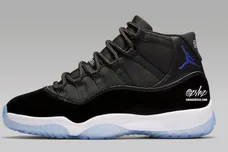“Sum 2 Prove” served as the third single for Lil Baby’s sophomore album My Turn. In an arena where rappers are expected to present themselves as the best, “I got somethin’ to prove / Yeah, I’m young, but got somethin’ to lose” was an admirably humble assertion for Lil Baby to make. On another one of the album’s cuts, “Emotionally Scarred”, he claims that he never refers to himself as a G.O.A.T. because he “[leaves] that love to the people.” Lil Baby has enough reason to be boastful. He came up amid a bloated class of Lil’s and Young’s and managed to nudge his way into the handful that remained relevant and exciting. While My Turn only marks his second studio album, he laced a tight string of mixtapes that solidified people’s faith in him as a prodigy in the Atlanta trap community. It’s one thing to state that you’re striving to be better; it’s another to have that truth come through in the music.
There are many moments on My Turn where Lil Baby convinces us that he’s still diligently clawing his way to the top. His hunger is invigorating on its opening track. “Get Ugly” is exactly how you want the main act to step on stage. Firstly, Lil Baby made sure not to share his spotlight with anyone, avoiding a potential impediment to his momentum. On top of that, he preserved his own energy level throughout the whole performance. The second verse on there is an album highlight. ATL Jacob’s beat strikes the perfect balance of being intimidating without falling into the corny grandiosity that too many openers have been guilty of in recent rap history. Lil Baby swerves around the terrain with immaculate control, squeezing witty insights into compact sequences: “You were not in the street, you wouldn't last a week / My bitch so bad, I pass on freaks / I'm here 'cause my granny be prayin' for me.”
Earl Gibson III/Getty Images
The 20-track project gives Lil Baby enough space to shine on his own while still being stuffed with high-profile features. The usual suspects emerge: Gunna, Future, Lil Uzi Vert, Young Thug. The electricity is so tangible when these artists come together that it can seem impossible to judge their collaborations from an objective standpoint. How am I not supposed to flip a table when Lil Baby and Gunna’s voices are swapped out over seesawing strings? Would it be unreasonable to suggest that these songs be omitted from consideration when evaluating the merit of an album? We know they’re going to fulfill their intended purpose. The table has been flipped a mere second after you press play. These loyal comrades all elevate one another to heights where you can’t discern what components are truly standing out. It’s all peak and the explosive beats they select for these occasions ensure that there’s no opportunity for everything to settle and for the listener to take note of what actually occurred.
What are we left with? If we surveil the surroundings, we still have the album’s infectious lead single, “Woah” - a predictable hit that wasn’t even insipidly formulaic. It has a sing-songy hook conducive to TikTok dancing, but Lil Baby bars out for the verses. The algorithm creeps in on “Same Thing”, though. Tay Keith throws together one of those sunny, guitar-based trap beats that capitalize on how easy it is to listen to someone with the slightest sensibility for melodic flows. This slot on the album was already filled by “Catch The Sun”, Lil Baby’s blissful contribution to the Queen & Slim soundtrack. Tay Keith’s producer tag is redeemed on “No Sucker”, where Moneybagg Yo plays Baby’s baritone counterpart. The song thrives off its sporadic off-kilter twists: Lil Baby immediately stumbles in with an “uh-oh”, the beat’s cyclical sirening clumsily hiccups, a ticking clock is sprinkled in after Moneybagg references one. Overall, its messiness makes for the winning recipe. At times, Lil Baby can breeze by so effortlessly that a bit of friction is actually appreciated.
Whether it’s because of the criteria for charts and certifications in the streaming era, a generation of artists who love living in the studio, or some alternate reason, we keep being left to ponder the difference between an album and a collection of songs. What would allow a 20-song project to hold itself together enough to be esteemed as an impressive album? How could being fed so much material still leave us feeling like we didn’t eat a full meal? Maybe the issue is that artists, as well as everyone else, grow incrementally. We take steps towards self-improvement, but rarely giant leaps. To claim that one’s creative growth within a less-than-two-year span can be on full display on twenty whole tracks is wildly ambitious. Lil Baby is great and keeps getting better, but not every song on My Turn shows growth. A more concise body of work would have been more aligned with his modest message that there is always more to prove.









